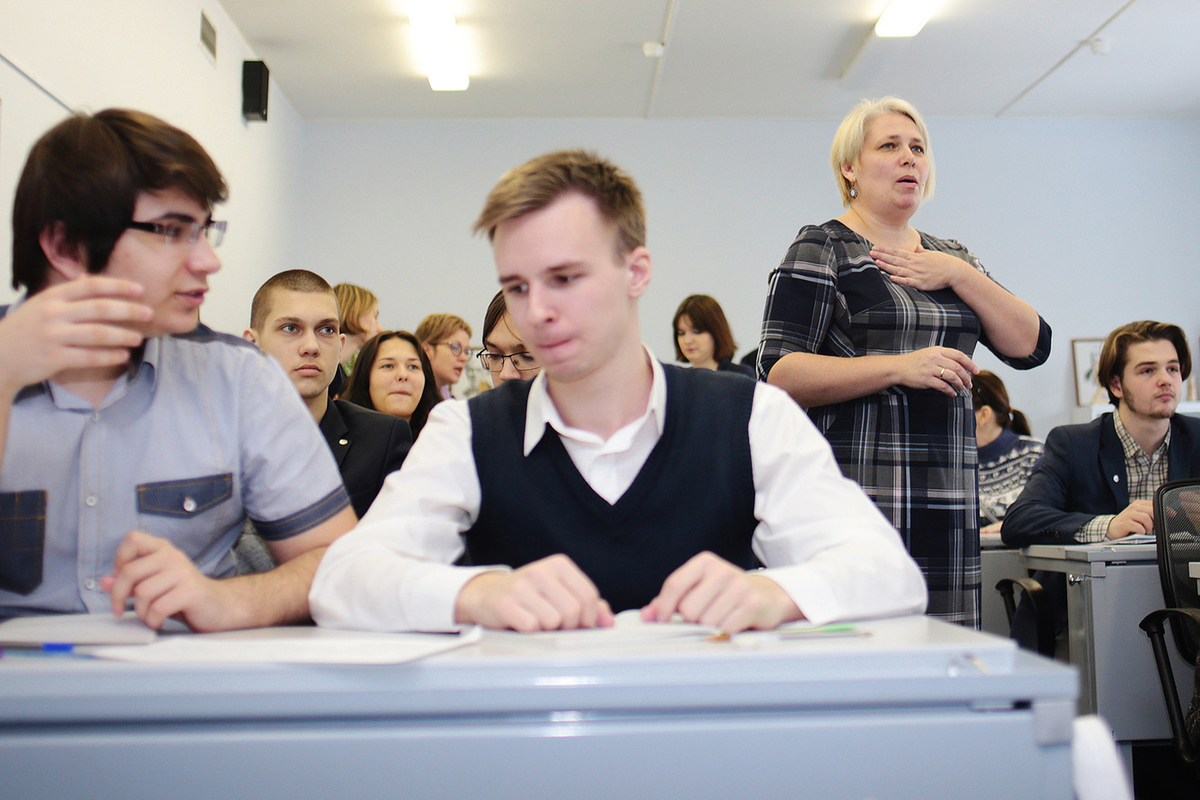The State Duma offers optional final certification – the Unified State Exam or “regular exams”
[ad_1]

How can we reorganize the Unified State Examination? This question seems to be tormenting deputies day and night. How else to explain the endless initiatives in favor of modifying or even abolishing the unified state exam. Coming from various, sometimes completely non-core committees of the State Duma. This time, a group of parliamentarians introduced a bill that would force graduates to make a choice: if you want, you can take the Unified State Exam, or if you want, you can take “regular exams.”
This is the right of choice for 11th graders: either take the Unified State Exam, or “state exams in the educational programs of basic general and secondary general education.” I would like to immediately remind you that in the graduating class of high school, depending on the program, there are 13-14 subjects.
How do parliamentarians motivate this examination duality? “They don’t like the Unified State Exam,” the deputies explain. And they even call “states,” including the OGE, “a harmful mechanism that exists today and torments children.” And therefore “must be adjusted.”
In the explanatory note of their project, the deputies refer to certain “surveys and meetings with audiences.” There are also numbers there, although they are somewhat unexpected. Lawmakers cite as an argument “Russians’ spending on herbal sedatives and glycine.” They say that in May 2023, just when the Unified State Exam was being passed, the population’s “sedative” expenses increased to 471.9 million rubles…
I would like to know – how much did you spend before? And why do deputies even think that 13 exams will take parents less validol than 3-4 Unified State Examinations? They are sure that it is cheaper to hire tutors for all exams than for two main and one or two additional “state” ones – the motive of “extra costs” is also present in the explanatory note.
Obviously, suspecting how many people will be cut off in “regular exams,” legislators introduce the motive of “better selection.” They say that the smartest will go to universities – they are confident in their preparation, since they dared to take the Unified State Exam. But among others, a “better selection of candidates” will begin for admission to colleges (secondary specialized educational institutions): colleges, schools and technical schools. And this screening will “increase the influx of people wishing to receive vocational training.” Vocational schools are idle, it’s a mess.
The bill is proposed for implementation by 2025.
There have been countless attempts to redo or completely abolish the Unified State Exam in recent years. There were ideas for a step-by-step abolition of “state tests”, with a predominance of “creative and oral tasks” in the exam. Or a complete abolition of the Unified State Exam, with a return to gymnasiums or “classical Soviet education.”
In January 2024, a proposal was made in the Duma to write an essay on the Unified State Exam in history. Six months earlier, they recommended “excluding the Unified State Exam” from the education system. They pointed to “scandals with inflated scores, technical failures in the publication of results, confusion in the very mechanism of passing the Unified State Exam.” However, ideas about taking the Unified State Exam or the “classical” exam, to choose from, were floating around back in 2021. In defiance of this, there was a proposal to do only one Unified State Exam, which would contain questions on all subjects of the school course.
But, of course, most proposals for reform of the state exam came after Russia left the Bologna system. It was called the “system of unfulfilled hopes.” The idea of a “school student’s portfolio” was pulled out of the back drawers, which was promoted as an alternative to the Unified State Exam.
“It always seems to me that some of those who criticize the state exam, including in opinion polls, do not have a very good idea of how it works,” says Maria Bushueva, an expert in the field of education and the Unified State Exam. – In surveys they often talk about tests. Yes, there have been no continuous tests in assignments for a long time. The exams have a complex structure, which includes both written and functional parts. And a test one, yes. But also oral, for some items. Foreign languages are generally divided into two days precisely because there is speaking and listening. But people have gotten it into their heads about “continuous tests,” and that’s what they think.
This proposal – to choose between the Unified State Exam and “regular exams” – immediately raises questions in me. Where will the alternative be rented out? PPE (exam points – author) are organized in other schools, serious security measures have been taken there, frames, cameras, commission members carefully inspect and check everything. Do the deputies propose to take ten or more exams there? Or will there be a parallel process in other places, involving the same number of equipment, staff, and teachers? Who will organize and finance all this?..
I don’t understand why there is any need to propose some barely feasible projects when a special procedure for passing the Unified State Exam exists and has been worked out. It was in Crimea in 2014-2017, and has now been extended to new territories. And also for graduates who, for various reasons, finish 11th grade abroad. Those who can and want to take the Unified State Exam. The rest receive grades based on the average score in the certificate.
It was recently proposed to extend this procedure to graduates of rural schools entering agricultural universities, to IT specialists who are in short supply, etc. Probably, this preferential list can be expanded if desired. Although in most universities we already have a sufficient percentage of preferential and targeted admissions. But at least this does not break the already created and working exam system.
[ad_2]
Source link








